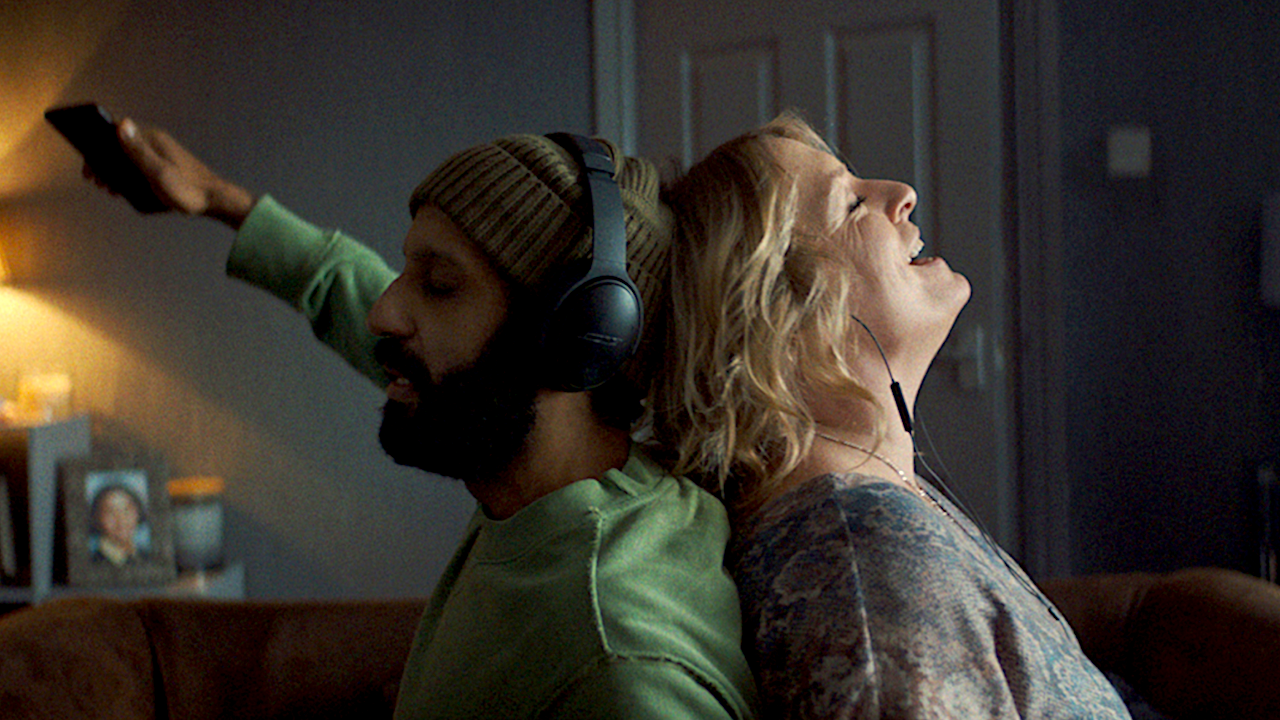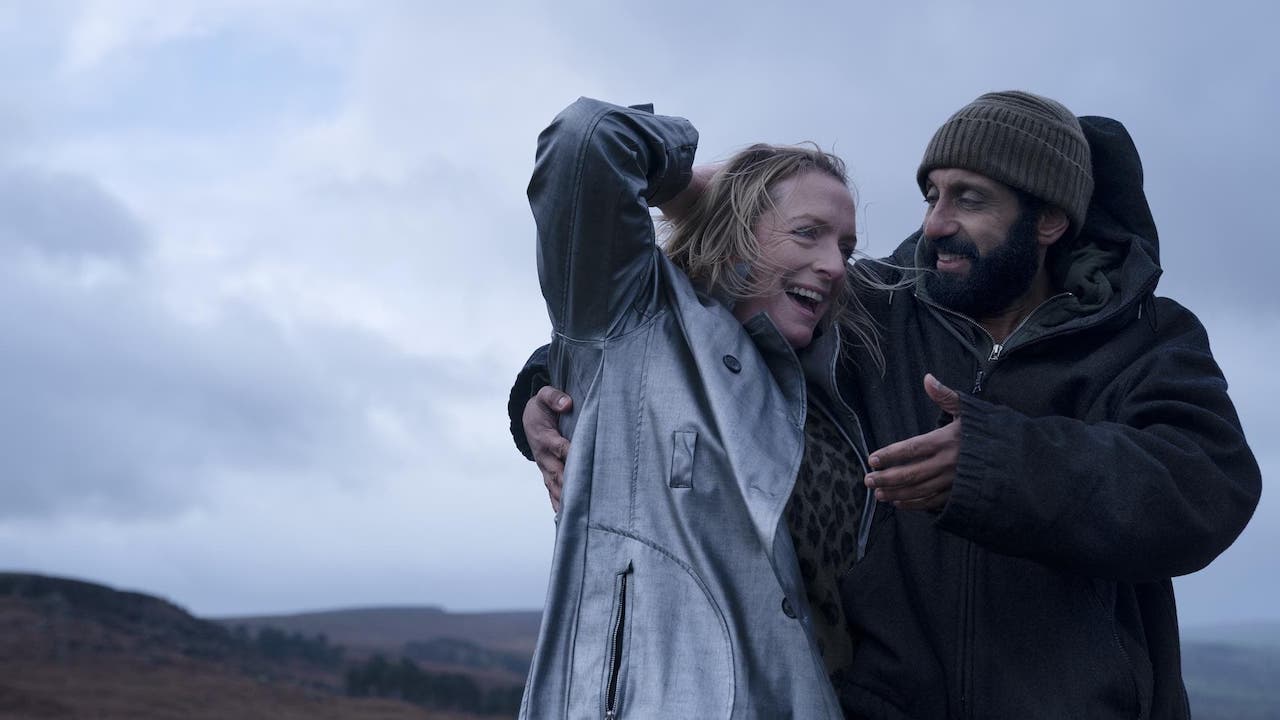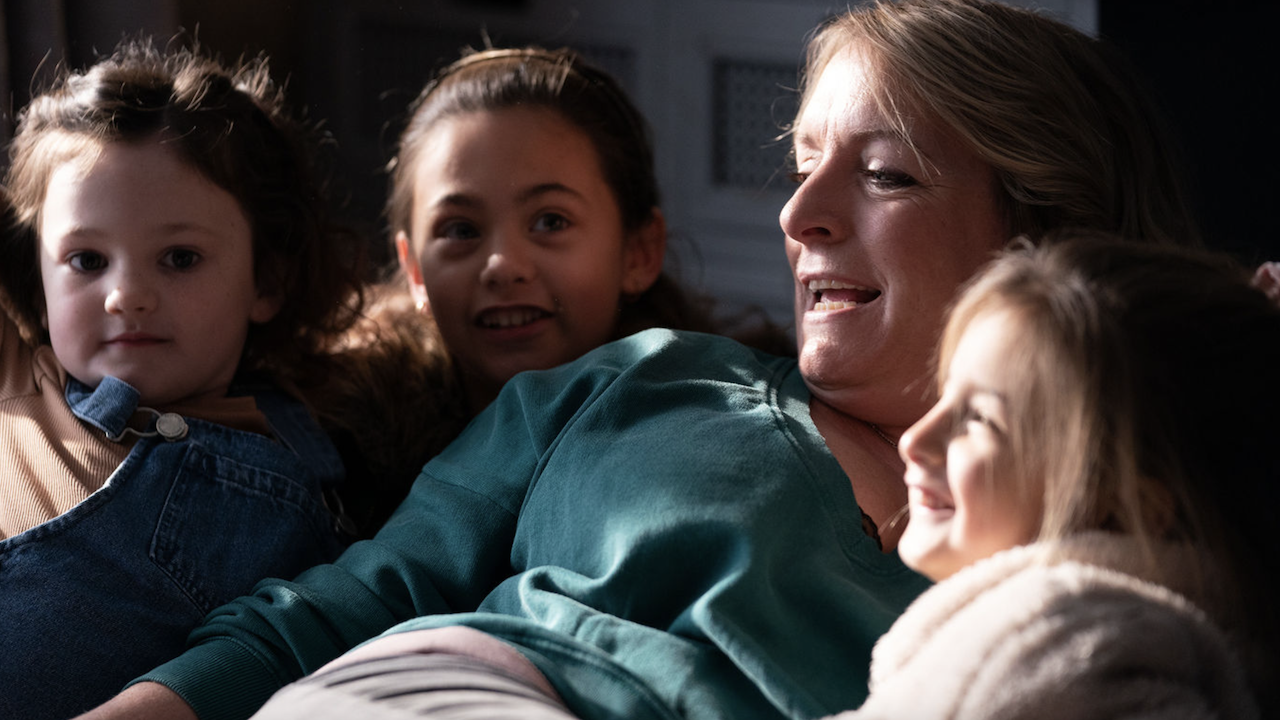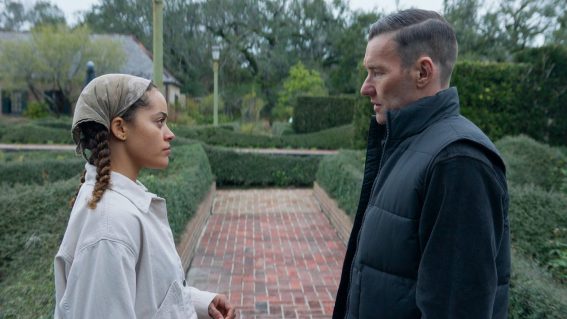Ordinary romance Ali & Ava is directed with extraordinary empathy

Starring Adeel Akhtar and Claire Rushbrook amongst its realist Bradford ensemble, Ali & Ava is a rare film to critic Rory Doherty: a heartfelt love story that’s not dripping in sentimentality.
The films of Yorkshire director Clio Barnard aren’t as similar or easily identified as you’d think, despite all taking place in quiet English counties, and all presenting rich interiorities of working class people with a natural, somewhat social realist lens. But the claim that her films are indistinguishable with those of her contemporaries Andrea Arnold or Shane Meadows would be a reductive one, and an easy assumption to disprove.
Barnard has played around niftily with the mediums of documentary and fable, and even though her work has stylistically dipped into tragedy and thriller territory, it shouldn’t come as a surprise that her latest taps into another stable genre; the gentle romance.
Ali & Ava is a simple yarn, exploring how two tender souls try to care for and mend one another, despite each having complicated, volatile personal lives. It feels broader in tone than some of Barnard’s earlier work, but its social conscience is always on full display, and Barnard evades overly simple sappiness with incisive and inventive glimpses into the hidden problems of its Bradford ensemble, ones they aren’t capable of articulating themselves.
Take Ali (Adeel Akhtar), the dutiful landlord, who still lives with his ex-wife to keep his marriage’s dissolution from his judgemental British-Pakistani family. When he’s not deescalating mobs of unruly kids by staging impromptu dance parties (an effective if forced characterisation), he’s keeping his composure at tense family dinners and dancing/boxing atop his car in twilight fog. Akhtar, potentially best known as a member of the titular Four Lions, glows in the role, full of energy and a heartwarming wit—all of which is tinged with sadness the more we see of his private struggles.

When Ali is properly introduced to one of his tenant’s teachers, Ava (Claire Rushbrook), he immediately adopts the role of a friendly, charming courter. Rushbrook is equally impressive in the film, grounding Ava in an effortless warmth and kindness without ever feeling too sweet or contrived. These are normal people played by actors who excel at making normal people stand out, and as a result the film builds what feels like a genuinely ordinary romance. It’s made special, and dramatically compelling, by how indebted they feel to their immediate loved ones, and how exhausting they find such commitments.
It’s not long before Ava warms to Ali, but she’s as wary as she is affectionate, shouldering her own complicated family situation. Barnard deserves credit for the film never veering into melodrama; in fact sometimes the flairs of fiery emotions mesh with the realist style to create unexpected comedy.
It’s found in the film’s most electric scene, when Ali and Ava sing and dance to each other’s preferred music in her front room. (Yes, there’s a lot of singing and dancing in this film; there has to be, with such a brilliant soundtrack curated by Connie Farr and Harry Escott.) The pair find out their love won’t be a song and dance, however, when Ava’s grown son Callum charges at them brandishing a sword.

This act of aggression, and its immediate aftermath, is indicative of when Ali & Ava works best. The violence comes across as absurd, but still shocking; we’re grounded enough in reality to reel at such an attack even if we’re laughing at Ali’s comically explosive reactions But its real power is conveyed in the aftercare, as we get a glimpse at how Callum’s problems have taken root in him and started to affect others.
Ali & Ava is built on sturdy dramatic ground, but it’s a shame it never really transcends it, or discovers particularly subtle narrative methods. There’s a rich source of potential conflicts, and Barnard takes a more than commendable stab at developing them, but the obvious way emotional crises are approached sometimes distracts you from the believable realness of the characters.
But although some dramatic strands in the film’s climax start to feel a little frayed and confused, Ali & Ava avoids the big stumbles and convincingly sticks its landing, leaving you with enough pleasant afterthoughts to remember it fondly. It’s rare that a film that warms its audience so thoroughly isn’t dripping in trite sentimentality, but Barnard has managed it admirably.



















